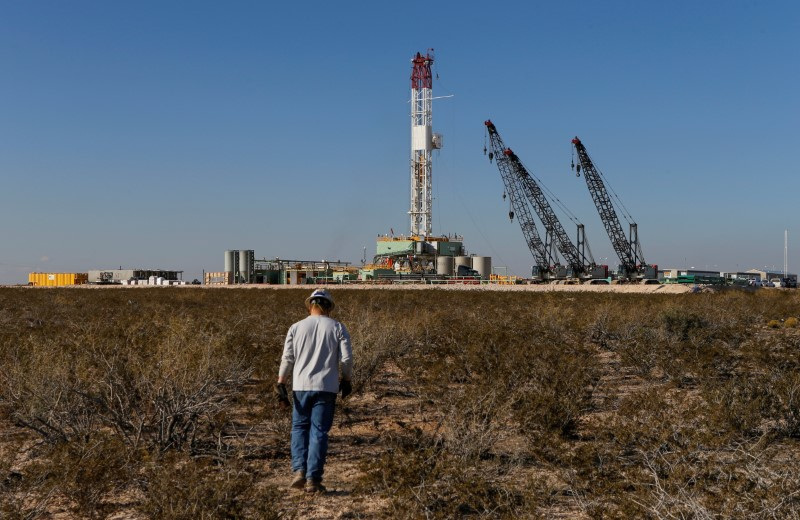By Arathy Somasekhar
HOUSTON (Reuters) -Oil prices ticked up on Friday and were on course for a weekly gain of more than 3% as positive economic data and signals from Fed policymakers that they could cut interest rates as early as September eased demand concerns, while fears of a widening Middle East conflict continue to raise supply risks.
futures were up 37 cents, or 0.5%, at $79.53 a barrel by 12:05 p.m. ET (1605 GMT). U.S. West Texas Intermediate crude futures rose 46 cents, or 0.6%, to $76.65.
Brent was set to gain more than 3.5% on a weekly basis, while WTI was on track to rise more than 4%.
“Crude is in a recovery mode over the past three trading sessions as geopolitical tensions still seem to be a positive factor, and on-again off-again recession fears have calmed a bit, at least for now,” said Dennis Kissler, senior vice president of trading at BOK Financial.
A trio of Federal Reserve policymakers indicated on Thursday that they were more confident that inflation is cooling enough to cut rates. A bigger-than-expected fall in U.S. jobless claims data also helped to underpin the recovery.
The number of Americans filing new applications for unemployment benefits fell more than expected last week, suggesting that fears the labor market is unraveling were overblown and that the gradual softening in the labor market remains intact.
Also offering support was China’s consumer price index, which rose last month at a slightly faster than expected rate, statistics bureau data showed.
“An uptick in Chinese inflation data supported sentiment. At the same time, the geopolitical situation remains tense, with escalating confrontation risks supporting oil prices,” said George Khoury, global head of education and research at CFI.
Israeli forces stepped up airstrikes across the Gaza Strip on Thursday, killing at least 40 people, Palestinian medics said, in further battles with Hamas-led militants.
The killing last week of senior members of militant groups Hamas and Hezbollah had raised the possibility of retaliatory strikes by Iran against Israel, stoking concerns over oil supply from the world’s largest producing region.
Iran-aligned Houthi militants have also continued attacks on international shipping near Yemen in solidarity with Palestinians in the war between Israel and Hamas.
Leaders of the United States, Egypt and Qatar on Thursday called on Israel and Hamas to meet for negotiations on Aug. 15 in order to finalize a Gaza ceasefire and hostage release deal.

The Russia-Ukraine conflict also continued as Moscow moved extra tanks, artillery and rocket systems to its southern Kursk region on Friday as it battled for the fourth straight day to end a shock incursion by Ukrainian forces.
Lending further support to prices, Libya’s National Oil Corp declared force majeure at its Sharara oilfield from Wednesday, adding that it had gradually reduced the field’s output because of protests.

